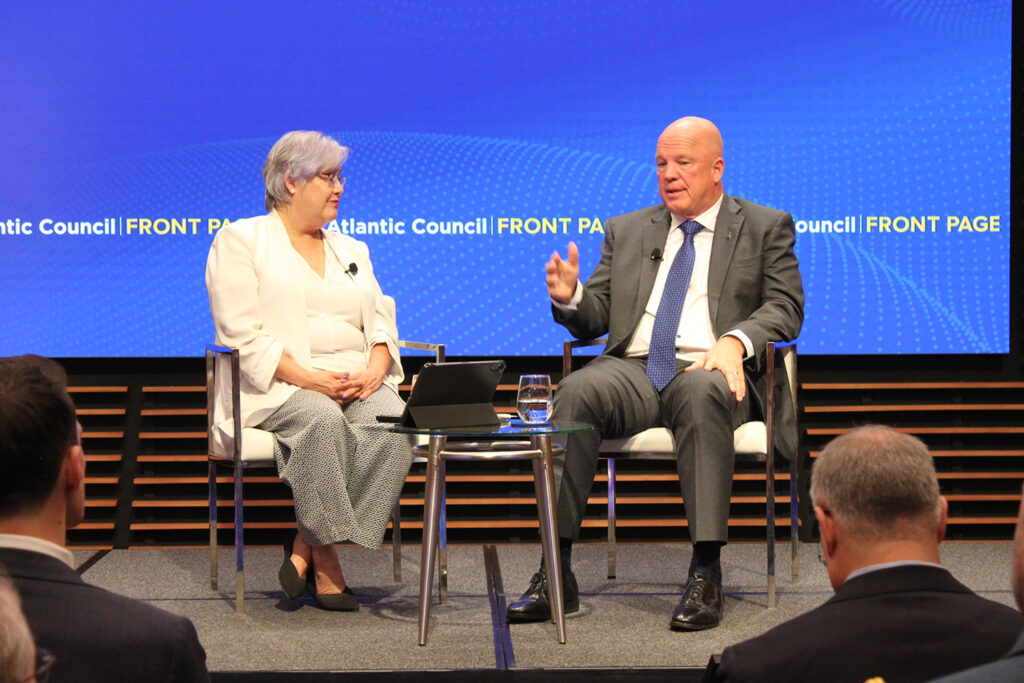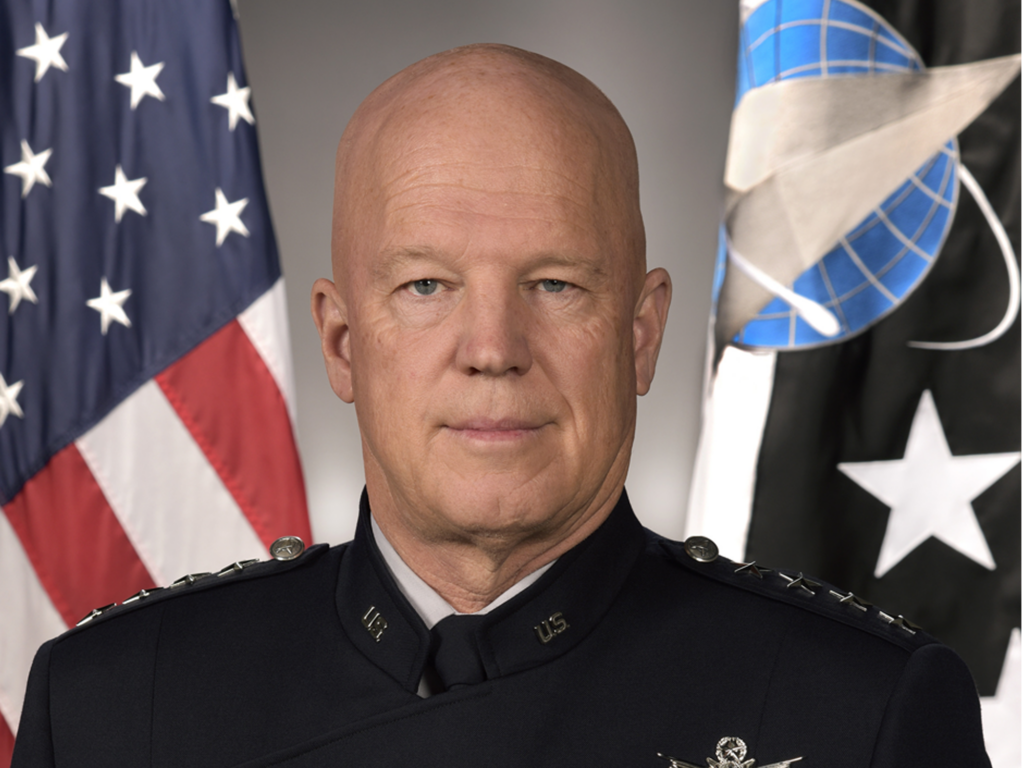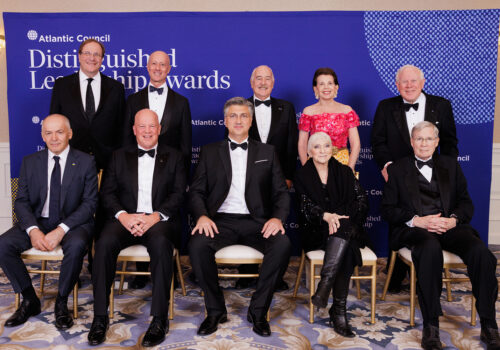Watch the full event
China is catching up in the race to integrate space capabilities with the rest of its military, according to John W. Raymond, a retired US general who served as the first chief of space operations of the US Space Force.
Raymond, speaking at an Atlantic Council Front Page and Commanders Series event on Thursday ahead of receiving the Council’s Distinguished Military Leadership Award, explained how for decades, the United States had the advantage. But now that “others have had a front row seat and have watched that advantage,” he added, “now they’re doing the same thing.”
“If you look at what China has built, they now have a very capable space-enabled military that can threaten our traditional joint warfighting partners,” he warned. “We have to have the ability to protect those forces.”
Regardless of China’s advancements, Raymond said that the United States is still “the best of the world in space, especially with our allies and partners at our side.” In weighing the likelihood of further international partnerships on space, Raymond said he is hopeful. “I think space is a domain that helps unite countries globally.”
Below are more highlights from the event, moderated by Breaking Defense Senior Space Reporter Theresa Hitchens, where Raymond talked about securing the space domain through deterrence and working with US partners and the private sector.
Costs and benefits
- Raymond, who served as chief of space operations from 2019 to 2022, said that over time, he has seen the space domain change “significantly,” becoming more congested, contested, and competitive.
- As security threats—including nuclear threats—become more elevated, Raymond said space will play an important role in maintaining an integrated deterrence. “If we can deter conflict from beginning or extending into the space domain, then I think we’ve got a real shot at deterring conflict from spilling over into other domains,” he said.
- In fortifying deterrence in space, Raymond explained, the United States “really focused on denying benefits” of any aggressive action, for example by making its space architecture more resilient to attacks. But “if you’re going to really deter, you also have to be able to impose costs,” he said. “It’s about protecting our land forces, our air forces, and our maritime forces.”
All systems go
- Raymond reflected on the rise of the commercial space industry, noting that as the Space Force has partnered more and more with the private sector, it has seen the speed of its innovation rise, costs decline, and its mission capability widen.
- At the same time, there are differences between the Space Force and industry when it comes to profit and loss and time cycles. “There’s lots of challenges,” Raymond said. “But if we can work through this . . . I think there’s advantage there to be had.”
- The Space Force is looking to implement acquisition reforms, given that smaller companies have had trouble navigating the processes to procure additional capabilities and technologies. But the issue, Raymond said, “actually starts well before acquisition.” It lies with “force design,” or the structure of the United States’ technological arsenal.
- For example, if the Space Force acquires a small number of expensive satellites that take many years to build, rather than procuring many lower-cost satellites that sit in various orbits, “you’re not going to do that fast . . . and you’re probably not leveraging the small new innovative commercial space industry,” he said.
- Raymond raised concern about the increasing number of objects—space debris—floating through space, in addition to satellites. With that, and the Space Force’s role as “space traffic control” for the world, “domain awareness is critical,” he said. But, he added, the United States is thinking about how to shift that role to a civilian agency. He agreed with the shift, urging the Space Force to “focus military efforts on military types of missions.”
Katherine Golden is an associate director on the Atlantic Council’s editorial team.
Watch the full event
Further reading
Thu, May 8, 2025
The 2025 Distinguished Leadership Awards: Honoring leaders who demonstrate ‘the true meaning of bravery and service’
New Atlanticist By
The Atlantic Council honored individuals who have shown courage and dedication through their leadership, service, and activism.
Thu, May 8, 2025
Full transcript: The 2025 Distinguished Leadership Awards recognize leaders reshaping the global landscape
Transcript By
On May 8, the Atlantic Council honored five visionary leaders along with heroes from Ukraine's fight against Russian aggression.
Thu, May 8, 2025
The lesson of VE Day 80 years later: Discard the ‘false choice’ between US values and interests
Inflection Points By Frederick Kempe
This epoch has shown the United States at its best. Yet clinging to the status quo isn’t a policy designed for the future.
Image: General (ret.) John W. “Jay” Raymond speaks at an Atlantic Council event on May 8, 2025.




